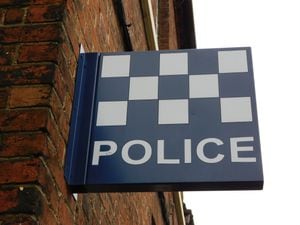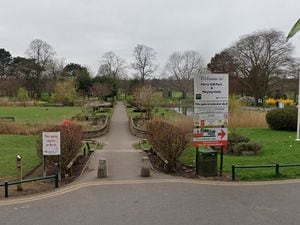Stalking cases rise but few face charges
More than 15 stalking and harassment cases were reported every day in the Black Country last year, new figures reveal.

Office for National Statistics data shows that across the four boroughs 5,504 incidents were reported between October 2017 and September 2018.
In total West Midlands Police recorded 12,800 incidents involving stalking, harassment or malicious communications – but charges were brought in less than one in 10 cases.
According to the figures the number of these crimes has increased eight-fold in Dudley over the last five years, where 1,423 cases recorded in 2017-18.
Sandwell and Walsall have both seen five-fold increases since 2012-13, while in Wolverhampton such cases tripled to 1,251 cases last year.
Staffordshire Police recorded 8,300 cases over the 12-month period – including 693 stalking offences – but brought charges on just 415 occasions.
The Home Office said police recording of stalking and harrassment has improved and victims are feeling more empowered to come forward.
However, Her Majesty’s Inspectorate of Constabulary (HMIC), the police watchdog, recently published a report stating that stalking and harassment were not being investigated by police consistently or effectively.
It says there is no single definition of the crime, which means “police forces are not consistently identifying stalking and are not protecting victims as a result”.
The report added that forces were not using powers under stalking laws to search perpetrators’ homes so investigations are “not as thorough as they could be”.
The watchdog has given the National Police Chiefs’ Council (NPCC) six months to adopt a series of recommendations. Lucy Hadley, campaigns and public affairs manager at Women’s Aid, said: “It is concerning that police forces are continuing to fall short when it comes to effectively handle stalking and harassment cases and give the appropriate level of support that survivors desperately need.
“It can be a matter of life or death that the police give the right response in stalking cases.”
Women’s Aid has been working with the police on the Make Yourself Heard campaign, on how to safely dial 999 when it is too dangerous to speak.
Assistant Chief Constable Alan Todd, from the NPCC, said: “The police service receives 12 million 999 calls each year and a small, but important number need to use the ‘silent solution’. Messages guide you throughout the process and used properly, it is simple and helps us to help you.”
Police say a silent emergency call on its own will not bring assistance, however a victim can alert the call handler by coughing, tapping keys or pressing 55.





